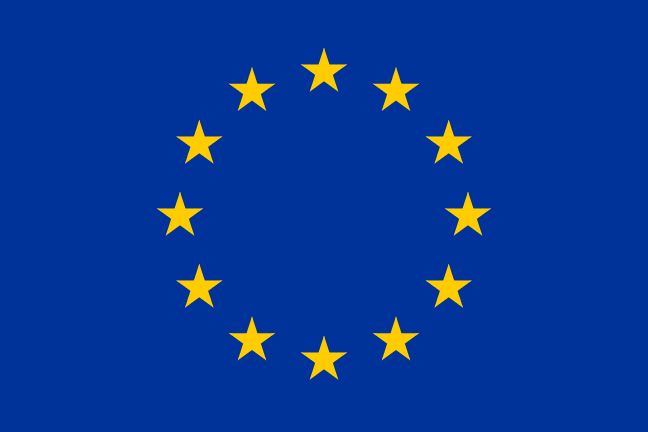|
Size: 6569
Comment:
|
Size: 6919
Comment:
|
| Deletions are marked like this. | Additions are marked like this. |
| Line 43: | Line 43: |
| ||<#AADAFF> morning session (M) ||<#F0F0AA> coffe break ||<#FACACA> morning hacking session ||<#F0F0AA> lunch break ||<#DAAAFF> afternoon session (A) ||<#F0F0AA> coffe break ||<#FACACA> afternoon hacking session||<#AAFFAA> status report || | ||<#AADAFF> morning session ||<#F0F0AA> coffe break ||<#FACACA> hacking ||<#F0F0AA> lunch break ||<#DAAAFF> afternoon session ||<#F0F0AA> coffe break ||<#FACACA> hacking||<#AAFFAA> status report || |
| Line 85: | Line 85: |
| == Worksheets == * [[attachment:Computing modular group cohomology.ipynb]]: Computation of modular cohomology rings of finite groups with Sage * [[attachment:How_to_implement_new_algebraic_structures.ipynb]]: A tutorial on parents, elements, categories and coercion |
|
| Line 112: | Line 117: |
| * [[http://cg.cs.uni-bonn.de/de/mitarbeiter/dipl-inform-christoph-lueders/|Christoph Lüders]] (Bonn University) |
Contents
Following a long tradition of similar workshops, the Sage days 100 workshop will take place in Bonn Germany, July 22nd - July 27th. It welcomes anyone who wishes to work with SageMath, from complete beginners to advanced developers. It will consist of tutorials, participant presentations and mostly free time to let participants work on their mathematical programming projects and get helped from more advanced users. The precise schedule of the workshop will be decided at the begining of the workshop and adapted according to the participant needs.
The afternoon of Wednesday 24th will be dedicated to a SageMath presentation at Max-Planck Institut (for students, PhD students, postdocs and professors). If you wish to be involved in this presentation, contact the organizer.
Practical information
Location
All week
Room 0.016 (ground floor, left of the main entrance) Institut für Informatik Endenicher Allee 19A Bonn
Special Wednesday afternoon event
Lecture Hall (third floor) Max-Planck Institut Vivatsgasse 7 Bonn
Links
Schedule
Begining of the workshop Monday 22nd
- 9:30 - 10:00 welcome coffee
10:00 - 10:30 A SageMath and sage days panorama (by V. Delecroix)
- 10:30 - 11:30 Participant presentations and schedule organization
For all other days (Tuesday 23rd - Friday 26th)
9:00 - 10:30 |
10:30 - 11:00 |
11:00 - 12:30 |
12:30 - 14:00 |
14:00 - 15:30 |
15:30 - 16:00 |
16:00 - 17:30 |
17:30 - 18:00 |
morning session |
coffe break |
hacking |
lunch break |
afternoon session |
coffe break |
hacking |
status report |
The hacking session are here to let people work on their own projects while having SageMath experts helping/answering. The tutorial sessions will consist of
Monday |
welcome |
get started with SageMath |
Tuesday |
package presentations |
? |
Wednesday |
? |
(optional) Max-Planck afternoon |
Thursday |
? |
? |
Friday |
? |
? |
Remaining tutorial sessions to be organized:
- git + create a SageMath/Python module + automated testing
- debugging and profiling
SageMath development
- databases
- Cython
Broad mathematical thematics
Combinatorics, geometry and dynamics on real surfaces (complex curves). Here is a non-exhaustive list
- moduli space of curves, differentials, spin structures
- enumerative geometry, integral points in polytopes and (quasi-)modular forms
- geometry and dynamics of flat and hyperbolic surfaces
- braid groups, mapping class groups
Relevant Sage packages
admcycles: tautological ring on M_{g,n} (Aaron Pixton, Johannes Schmitt, Jason van Zelm)
snappy: 3-dim hyperbolic manifolds (Marc Culler, Nathan Dunfield, and Matthias Goerner)
veerer: train-tracks and veering triangulations (Vincent Delecroix)
surface_dynamics: translation surfaces (Vincent Delecroix)
flipper: mapping class group (via flips in triangulation) (Mark Bell)
curver: mapping class group (via curve complex) (Mark Bell)
sage-train-track: free group automorphisms (Thierry Coulbois)
We will have 20 min presentations of each package emphasizing:
- What the package is useful for?
- What should I do if I want to use the package? ie, installation and first steps tutorials
- What is currently under active development?
- Wishlist features / possible research experimentations (with the hope that more people get involved)
Worksheets
Computing modular group cohomology.ipynb: Computation of modular cohomology rings of finite groups with Sage
How_to_implement_new_algebraic_structures.ipynb: A tutorial on parents, elements, categories and coercion
Organization
Participants
- Vincent Delecroix (CNRS, LaBRI Bordeaux, France - MPIM Bonn, Germany)
Jonathan Zachhuber (Frankfurt, Deutschland)
Simon King (Jena, Germany)
- Mark Bell (UK)
- Luke Jeffreys (Glasgow, UK)
Johannes Schmitt (Zurich, Switzerland)
Samuel Lelièvre (Paris, France)
Frédéric Chapoton (Strasbourg, France)
Thierry Coulbois (Marseille, France)
Jean-Philippe Labbé (Berlin, Deutschland)
Sophia Elia (Berlin, Deutschland)
- Sebastian Oehms (Stuttgart, Germany)
Laith Rastanawi (Berlin, Deutschland)
- Vanessa Paluch (Bonn)
- Shreya Kapoor (Bonn)
- Julian Ritter (LIX Paris)
- Ingrid Irmer (MPIM, Bonn)
- Hankyung Ko (MPIM, Bonn)
- Saul Schleimer (Warwick, UK)
- Brian Winn (Loughborough University, UK)
- Hisatoshi Kodani (MPIM, Bonn)
Tam Nguyen-Phan (MPIM, Bonn)
Stavros Garoufalidis (MPIM, Bonn)
Christoph Lüders (Bonn University)
Funding
The workshop is funded by OpenDreamKit 
With material help from the Laboratoire Bordelais de Recherche en Informatique (France) and the Computer Science Department at Bonn University (Germany).
Organizer
Vincent Delecroix (CNRS, LaBRI Bordeaux, France - MPIM Bonn, Germany)
